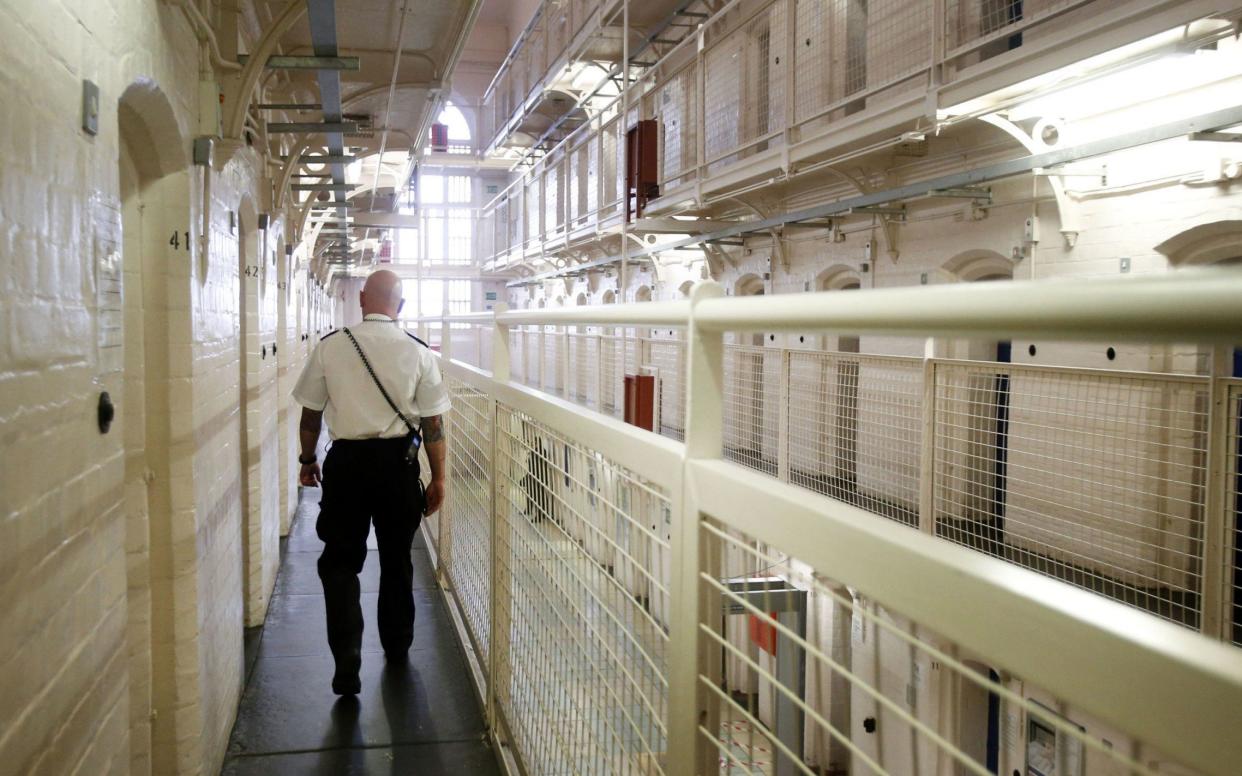KPMG hires former prisoners amid battle to reduce crime

One of Britain’s Big Four accountancy firms is hiring former prisoners as part of the Government’s push to cut reoffending rates.
KPMG UK has emerged as the first white-collar business to take on ex-offenders after joining a new scheme led by the Ministry of Justice.
Underpinning the initiative is a push by the Government to get more companies recruiting former convicts amid an overcrowding crisis at British prisons.
The professional services giant has already recruited its first group of former prisoners, who have joined a range of positions, including its technology department.
It is now working with the Ministry of Justice to encourage other major businesses to join the recruitment drive.
A current KPMG employee and ex-offender described the auditor’s programme as a “lifeline”.
He said: “It was rejection after rejection, businesses never looked beyond my criminal record. It felt quite belittling because no one’s looking at your skills and experience – that generates a lot of anger and frustration, it was very tempting to give up.”
According to the Ministry of Justice, prison leavers in full-time employment are 10pc less likely to re-offend after they’ve been released.
Research also found that more than 90pc of surveyed businesses who employ former prisoners describe them as being motivated, trustworthy and having good attendance, the department added.

Ed Argar, prisoners and probation minister, said: “We’re helping prisoners kick-start law-abiding lives, which makes our streets safer and provides businesses with the staff they need to boost the British economy.”
The announcement comes after KPMG UK recently opened a Redemption Roasters cafe, a coffee chain which offers jobs and barista training to current and former offenders, at its London headquarters.
Jon Holt, chief executive of KPMG UK, said: “Our longstanding focus on social mobility is about giving everyone – regardless of their background – the chance to succeed. I believe reformed prison leavers should be no exception.”
The new recruitment campaign follows the Government’s existing efforts to help convicts find jobs after being released.
The Government previously launched the New Futures Network, a specialist employment team within the HM Prison and Probation Service, which now works with UK business leaders to help offenders gain the skills, qualifications and training to reenter the workforce.
Inside Sunak’s plan for convicts to tackle the worklessness crisis

By Lucy Burton
At the HM Prison Highpoint in rural Suffolk a group of inmates are busy fixing and assembling dummy train tracks in the rain.
Nearby, a room full of power plugs is set up ready for another set of prisoners to participate in an electrician course, while others are fixing broken IT equipment for the Ministry of Justice (MoJ) headquarters.
These are just a few of the training courses on offer for the prison’s 1,300 inmates, ranging from forklift driving, to gardening, furniture painting and even traffic marshalling.
As Britain suffers a labour shortage, Rishi Sunak has spied an opportunity inside the UK’s packed jails. Hoping that ex-convicts could be part of a solution, the Prime Minister is urging big business to recruit prison leavers as part of a national campaign.
KPMG on Wednesday emerged as the first white collar British company to work with the MoJ on employing ex-offenders. With around one million vacancies in the UK job market, prisons and probation minister Ed Argar believes that prisoners could provide “businesses with the staff they need to boost the British economy”.
As one of the largest Category C prisons in the country, with former inmates including Boy George and Amy Winehouse’s ex-husband Blake Fielder-Civil, the focus at Highpoint is on training convicts whose escape risk is low. Prisoners who refuse to take part in any training or education have some of their privileges, such as a TV and exercise time, taken away until they agree.
There will be growing pressure on large Category C prisons like this one to help tackle Britain’s worklessness crisis in the years ahead. The number of Britons classed as economically inactive, meaning they are neither in a job or looking for one, has ballooned to 9.25 million post-pandemic.
At the same time, there are fears that criminals who are being released early to ease the prison overcrowding crisis are returning within just days, after ending up homeless.
The MoJ is racing to improve training opportunities for inmates at HMP Highpoint after a watchdog said in January it had failed to deliver its core purpose of getting them ready for life after release.
The courses on offer are constantly changing. Nicola Gibbins, the prison’s head of learning and skills, combs through official data once a month to find out where the country has the biggest skills gaps. A hospitality course will likely be next on the agenda to prepare inmates for potential jobs in Britain’s pubs, cafes and restaurants.
“We look at what the labour market is saying, where are the shortfalls, where are the gaps,” she says.

Alex Pond, the executive director of training at City & Guilds which runs the prison’s rail track course and the upcoming electrician course at HMP Highpoint, feels passionately that people in prison want a second chance.
“Everyone has skills shortages, we have an oversubscribed prison community willing to work.” he says. What the country needs to ensure is that each prison offers a different type of training, Pond adds.
“You wouldn’t want to spend £2m on a rail academy in every prison, but you would in two or three.”
The skills being taught need to be relevant to the skills gap in that area, Pond says, adding that prisoners should be allowed to move between prisons based on the skills which are needed in the location they will be released.
Pond admits that despite their training, there are still some prisoners who do not stay in employment after being released or end up reoffending, but argues that teaching skills in prison can offer hope for those who have long felt demoralised.
“I was brought up in a working class mining village, a lot of my associates know ex-offenders – we could have all ended up in prison at some time if things had gone wrong for us,” he says. “The lack of opportunity for some of these people is quite depressing. If you change someone’s life in here, the social impact is huge.”
A prisoner enrolled on the rail track course seems hopeful as he nears the end of his two-year sentence and prepares for a job in the industry.
“Definitely not [what I expected], but I like that there’s different avenues I can go with it and the money is good,” he says. “People want to work in a job that also interests them. If they have no passion for it they won’t be motivated to work and nobody will benefit – neither the employer or the employee.”
Making training opportunities more exciting in lower security prisons is becoming a political issue as the Prime Minister fights to tackle multiple crises. Prison cells are filling up too fast at a time when jobs are not. Internal figures obtained by The Telegraph last month showed that male prisons were 99.7pc full, with just 238 spaces left out of an operational capacity of 85,000. Prison inspectors last week uncovered cases of prisoners freed up to 18 days before their scheduled release date who had been recalled to jail, some finding themselves back behind bars even before their original release date had passed.
Many companies have long argued that the key to fixing the labour crisis could lie in Britain’s prisons. The bakery chain Greggs and the shoe repair and key cutting retailer Timpson have both hired former convicts for years, and now the Government wants big business to follow. As the jobs crisis escalates, ministers and the UK’s biggest employers are starting to realise that the solution may be hiding in plain sight.


